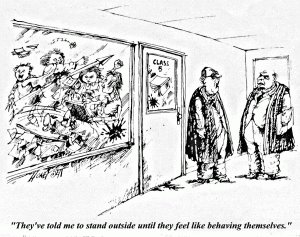Abduls # 1 & 2 Ashman and Rahman
“Can I do a picture of a Subaru?” said Hussain.
“What?” I looked up from the mess of reports on my desk. There were 173 of them. I’d been given 173 blank sheets just the day before. They were supposed to be done for today. No-one knew who had issued them only a day before the deadline; they acted like writing 173 reports with one days notice was normal, which in fact it was. There used to be a complex and lovingly crafted timeline on the wall of the staff-room that mysteriously disappeared to be re-jigged and replaced as soon as the first parents evening was cancelled and the the first issue of reports was delayed due to unspecified ‘technical problems’ i.e. nobody had bothered to save the template from last year and nobody designed a new one. It never returned.
“I want to do a picture of a Subaru.”
“Why?”
“Because we’re drawing today…erm…My Uncle’s got one” Pick a logical argument.
“Yes, Hussain, but the thing is…we’re drawing a poster of Martin Luther King. Don’t you remember about ten minutes ago when I went through it all on the board and showed you what I wanted? Look.” I pointed to the board. “Put your paper portrait way, do bubble writing at the top that says I Have A Dream, sketch Martin Luther King and then do a border. Make the border really colourful and interesting.” Making the border interesting is code for ‘spend as much time as possible colouring the border – don’t worry too much about the middle bit, because it’s Friday. By the time you have finished the border then the bell will go and I throw your sketch in the bin and go home.’ “The colours are there.” I pointed again to where the colours had been just a few minutes ago.
“Where are the colours Hussain?”
“Ashman put them in his bag sir,” said Hussain, matter-of-factly, “can I do a car then?”
“NO!”
I looked up at the class. Abdul #1 was lying backwards on a chair. His head was touching the ground and his legs were in the air. His jumper and shirt had slipped down his torso. Three of the others were drawing on his exposed stomach with biros.
“Abdul!”
Ashman stared out of the window looking like he’d just stolen yet more school equipment. Ashman regularly went home with colours, rulers, pencils, pens, reams of paper (and probably overhead projectors, videos and maybe the odd minibus) in his grubby Hi-Tec pump bag.
I stood up. Standing up is a prerequisite for gaining control of the room. They tell you that in college. Well, actually, I don’t think they did tell me that in college but trust me it is.
“Right lads! Put down your pens and look this way…”
“Is this okay? I’ve finished,” shouted Kasim. He ignored my masterful control of the class, leapt out of his chair and waved a piece of paper in my face.
“Sit down Kasim.” I snatched the paper from him. He looked disappointed that I wasn’t immediately praising him for his work and made no effort to sit down.
“But…”
“Shut up Kasim!”
For a moment Kasim looked like he was about to cry. Then he sat down. The class, momentarily shocked by me shouting at Kasim, quietened, apart from Munib and Ali, who continued to jabber across the passive and possibly comatose Mr Fallows at each other, or more specifically, at each others’ sisters. Ashman furtively took the colours out of his bag and placed them on the desk.
“Get out your planners out please,” I said.
Another thing they forgot to teach me at college, but I worked out within about half an hour of walking into this school, is that writing usually shuts up a rowdy class. You get the pupils to write something - anything - in their books. Keep making them write more and more so that they can never catch up. Threaten homework if they don’t finish in time. Write long convoluted sentences that completely contradict your own lessons on simple and clear sentence construction on the board for them to copy. Keep on writing. When they start complaining that their arms hurt, give them a pompous lecture about the lack of stamina among youngsters today and get them to write some more. Remember that adults can write quicker than kids. The more sentences and the more convoluted the better. With a bit of luck you can keep going until the bell goes.
Abdul: “Sir, I-I-I-I’ve lost my planner sir. I-I-I-I’m going to buy a new planner tomorrow sir. Shall I-I-I-I write it in my book?”
Me: “Abdul, you lost your planner in February. It is now June the ninth. Write it on your hand, or the desk, or anywhere. Why don’t you write it on your stomach next the sketches.”
Abdul: “Can I-I-I borrow a pen?”
Me: “Why haven’t you got a pen?”
Abdul: “I-I-I lost it in Maths sir.”
Me: “In February?”
Abdul: “I’ll write it in my book.”
Me: “Yes, Abdul. Do that.”
Abdul: “Sir, I-I-I lost my book. I-I-I think I-I left it in Maths. Someone nicked it.”
I ignored Abdul. His behaviour was all just a tactic to be let off writing, which was ironic since with his stammer written communication, for him, was often less effort than spoken
. “Okay class, here’s your homework.”
“I’ve got to go to my auntie’s,” interjected Raman from the back, by way of excusing his lack of homework two days before he failed to produce it.
“Take it with you Raman. I’m sure your auntie will be delighted you are doing your homework,” I told him, knowing that if he took it he would arrive on Monday announcing that he had left it in Science, until I reminded him he went to his Auntie’s, which would help him remember that he actually didn’t leave it in Science but now he remembers he left it at his Auntie’s, whom of course, he never actually visited because she lives somewhere outside of Islamabad. I turned to the board and wrote several long, convoluted sentences that, roughly translated, meant ‘finish your work at home’. There was some movement while my back was turned. I finished the last sentence and turned around. As if by magic three-quarters of the class had their coats on and were packing away their books.
“What are you doing?” I asked them.
“It’s home time.” Abdul #2 said.
“No it isn’t.”
“But you gave us homework.”
“Abdul, look at the clock. What does it say?”
Abdul #2 looked embarrassed. Abdul #1 helped him out.
“It’s 40 past 2.”
“And the lesson ends at…?”
“When the bell goes.” Said Kasim, with unerring logic.
I glared at him with as much psychotic violence as I could muster.
“Five to three. The lesson ends at five to three. It’s ended at five to three for the past two years. Every day you’ve been to school for the last one-hundred weeks the lesson has ended at five to three!” There was a moment of silence while people got to grips with this mathematical revelation and wondered why I was shouting again.
“Can we go early then?” said Abdul #2
“No,”
“But I’ve finished,” said Kasim, rather proudly. I remembered I had Kasim’s paper in my hand. I looked at it. It was a rather rudimentary sketch, done in ballpoint pen, of a face with a Nike baseball cap on. In the mouth of the face was an oversized spliff. I knew it was a spliff because the word SPLIF was written on it. Where the words I Have A Dream should have been were three other words, scrawled semi-legibly with a fading brown felt tip in Abdul#2’s distinctive scrawl…. Shag you mum!
Everything was lost. I had to fill fifteen minutes of nothingness at the end of a Friday with some activity. I fell back on the old-early-finish-Friday trick of tidying my classroom.
“Right everyone. I will let you get out early, but only after you’ve helped me tidy the room.”
Abdul #1 liked tidying. In fact it was probably his favourite thing in the world. He’d told me before that they used to ask him to tidy all the time in Primary School. Almost every day he helped out in the library, helped put up and take down displays, helped the caretaker move stuff and tidied the book boxes. I figured that it was probably an excuse to get him out of the classroom. In fact, his reading, writing, social and learning skills betrayed the fact that he probably spent pretty much of his entire Primary School career tidying. It was unfortunate for him that tidying was not examined at SATs GCSE A/S or A level, although someone, somewhere, probably offers a degree course in it.
It was such a shame that he was absolutely useless at it. For Abdul practice would never mean perfect. Abdul’s favourite job was using the staple grabber to grab staples from the walls. It took him about five minutes to dig a huge divot in the wall around a staple, leaving the staple itself standing proud and defiant.
Ten minutes later Ashman and Raman were fighting.
You see, tidying doesn’t really work as a time-wasting tactic. Abdul#2 and Munib were just two examples of students to whom tidying is totally anathema. When the jobs are divvied out to each member of the class Abdul#2 and Munib are just two of the students who use the following techniques to avoid tidying.
1. Completely ignore the instruction and hope the teacher will go away.
2. Serial Protesting. Protest against the fact that you were given poster removal, suggest that you are eminently qualified to spruce up the book boxes instead, when you are granted your wish, protest against this too because someone else is straightening tables and if you’d known you’d have volunteered to that. REPEAT ad nauseum.
3. Fake it. ‘Help’ with a task that four people are doing already. You do this by hovering near others who are tidying, without actually doing anything.
4. Group hopping. Move from group to group appearing to help with each but actually help with none.
5. Ignore the teacher’s further instructions, hoping they will be so caught up in organizing the protestors or the group-hoppers that they will forget you.
6. Planned incompetence. Begin a task but be so appallingly bad at it that you are quickly relieved of your responsibilities.
7. Sit or stand around doing nothing but simply will yourself to be invisible.
The problem for the teacher is this: the devil makes work for idle hands, especially idle hands that ostensibly are working but actually aren’t. Pupils who do not see the dignity in labour and refuse to involve themselves in it at all costs eventually get bored. This takes about two minutes. The teacher is quite happy if half the class take up option 7 but option 7 doesn’t work. Within two minutes the option 7 students will engage in bickering, petty vandalism, bullying of other students, shouting out of the window, trying to sneak out or generally being awkward and annoying.
Ashman and Raman fought because Ashman was Faking It and Raman was Group Hopping. Eventually the two met and continued an argument that apparently broke out several days ago and had been neither forgotten or resolved. Ashman and Raman lived by this motto: ALWAYS let the sun go down on an argument.
Five minutes to go. Mr Fallows, the classroom assistant, did the thing he does and left. Mr Fallows rarely spoke, either to the teacher or the pupils he was supervising. Most of the time he simply sat there, as if he was working out complex mathematical equations in his head and the noise and activity around him was a mild, but not fatal, distraction. He always left the room early. Sometimes as early as about ten minutes into the lesson. He never explained, or made any other verbal overtures before he went. Technically, I think he should have asked permission, even in that soft way that elicits your approval without appearing less powerful than you. But he didn’t. He would stand up and make a gesture that was kind of half-way between “oops I forgot to turn the gas off!” and “I’ll be back in a mo’”. And then he disappeared. Everyone (including his boss) knew that he had a secret coop at the back of the stage where he sat and read the paper. Sometimes people peaked in and caught him snoozing amongst the old papier mache scenery and musty moth-eaten costumes.
I didn’t blame him. He was essentially paid peanuts to take on the role of mother to Ashman and Raman for six hours a day, whilst I only had to put up with them for a measly four hours a week.
Which were nearly over for this week. I mentally surrendered, and, ignoring the increasing uproar from the corridor where Mrs Jones’s class had executed a Friday early breakout and were running up and down shouting, and the increasing restlessness from inside my room, where the boys had never quite worked out how to commit an Friday early breakout but were annoyed they weren’t also running up and down the corridor shouting, I began to collect the books and paper.
The bell went and the boys stampeded for the door, arriving in a wedge that jammed them together and caused Rahman and Ashman to fall on top of each other into the corridor, where they were trampled by Kasim and a couple of the others. I swore quietly to myself and, looking up, was faced with Abdul #1.
“I-I-I-ll help you t-t-tidy sir,” he said.
Thanks Abdul,” I replied, pointing to the pile of sketches. Abdul picked them up, shuffled them together, curled them into a tube and casually put them straight into the bin.














